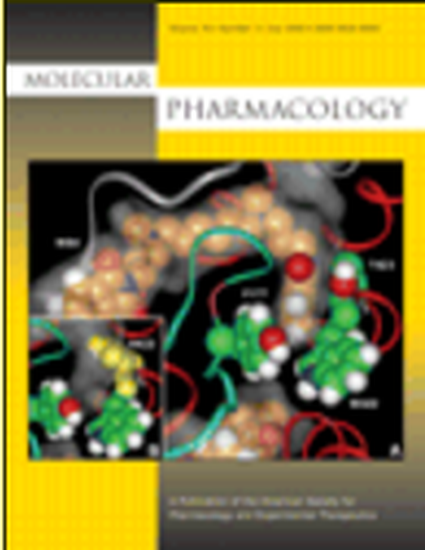
Article
Sustained Aryl Hydrocarbon Receptor Activity Attenuates Liver Regeneration
Molecular Pharmacology
(2006)
Abstract
In hepatocyte-derived cell lines, either loss of aryl hydrocarbon receptor (AhR) function or treatment with a persistent AhR agonist such as 2,3,7,8-tetrachlorodibenzo-p-dioxin (TCDD) can disrupt G1 phase cell cycle progression. The present study used liver regeneration to explore mechanistically how AhR activity modulates hepatocyte proliferation in vivo. Treatment of mice with 20 μg/kg TCDD 1 day before 70% partial hepatectomy (PH) resulted in a 50 to 75% suppression in liver regeneration. Impaired proliferation was not associated with changes in levels of interleukin-6 or tumor necrosis factor-α, which prime quiescent hepatocytes to enter G1 phase. In fact, administration of TCDD 12 h after PH, a period well beyond the priming phase, still induced the G1 arrest. Decreased proliferation in TCDD-treated mice correlated with reduced cyclin-dependent kinase-2 (CDK2) activity, a pivotal regulator of G1/S phase transition. In contrast to observations made in cell culture, suppressed CDK2 activity was not strictly associated with increased binding of the CDK2 inhibitors p21Cip1 or p27Kip1. However, TCDD decreased levels of cyclin E binding to CDK2, despite normal cyclin E expression. The evidence also suggests that TCDD-induced hepatic growth arrest depends upon sustained AhR activity because transient AhR activation in response to endogenous queues failed to suppress the regenerative response. These findings establish a functional role for the AhR in regulating normal cell cycle control during liver regeneration.
Disciplines
Publication Date
July, 2006
Citation Information
Mitchell, K. A., Lockhart, C. A., Huang G. and Elferink, C. J. (2006) Sustained Ah receptor activity attenuates liver regeneration. Molecular Pharmacology, 70(1): 163-70.
